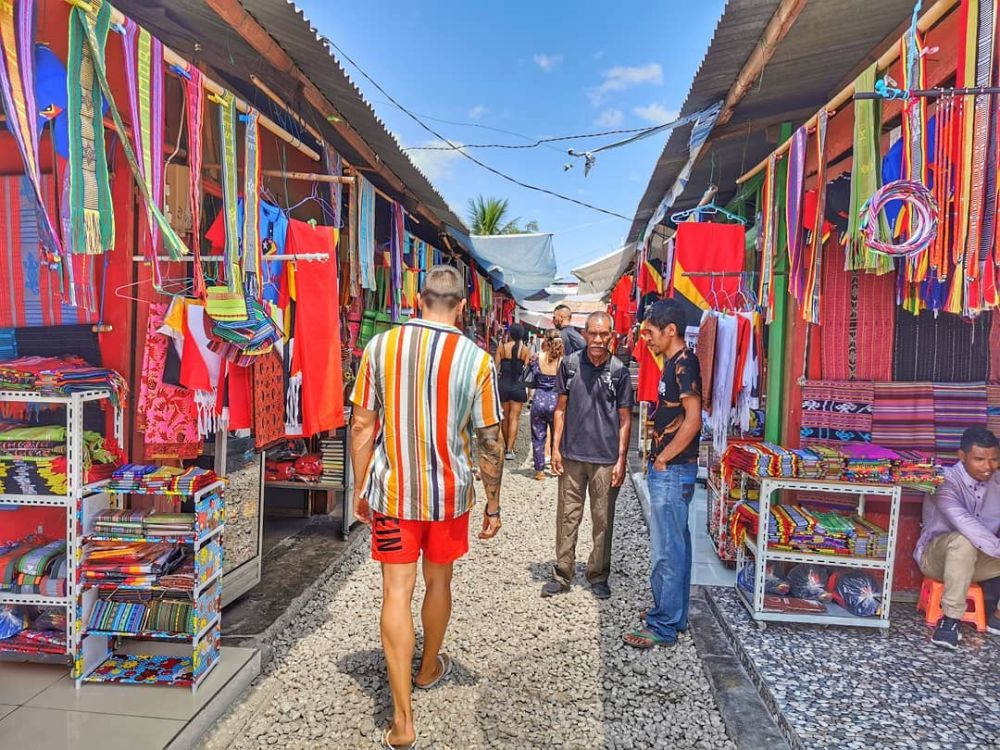

Tais Market is a notable landmark and a vibrant manifestation of Timor-Leste's traditional culture and artistry. Located in Dili, the capital city of Timor-Leste, this market is renowned for its rich collection of Tais, a form of traditional textile weaving that holds significant cultural importance in East Timorese society. The craft of Tais weaving is an age-old tradition passed down through generations, originating from various ethnic groups within the country.
Tourism in Timor-Leste is a relatively new industry, with its development hindered by years of political instability and conflict. However, after gaining independence in 2002, Timor-Leste began to welcome visitors eager to explore its untouched landscapes and cultural heritage. Among the country's attractions, Tais Market emerged as a compelling destination for those interested in traditional crafts and culture.
As the nation stabilized, so did tourism, and the Tais Market grew in importance both as a cultural hub and as a tourist attraction. Visitors to the market experience the vibrant colors and patterns of Tais textiles, which are not just crafts but also a means of storytelling and a display of regional identities.
Tais weavings are a cornerstone of Timor-Leste's tourism offerings, with each piece reflecting the unique identity of the weaver's region. These textiles are used for ceremonial purposes, traditional clothing, and as a symbol of Timorese heritage. The market itself serves as an interactive museum where visitors can observe weavers at work and learn about the different symbols, motifs, and techniques used in Tais weaving.
In recent years, there's been a push towards responsible and sustainable tourism practices in Timor-Leste to ensure that cultural landmarks like Tais Market continue to thrive without compromising the country's natural or cultural resources. Tourists are encouraged to engage with the local culture respectfully, and there is a greater emphasis on supporting local artisans by purchasing authentic, handmade items.
Additionally, there is a growing trend for experiences that go beyond mere observation. Many visitors seek a more immersive experience, such as participating in workshops to learn the art of Tais weaving firsthand. This not only supports local artisans financially but also helps preserve the cultural practice for future generations.
Tais Market in Dili remains a central figure in Timor-Leste's tourism landscape. The market stands as a living testament to the endurance of Timorese culture through periods of hardship and now as a source of national pride. For travelers seeking an authentic experience that represents the heart of Timor-Leste, a visit to the Tais Market is an indispensable element of their journey.